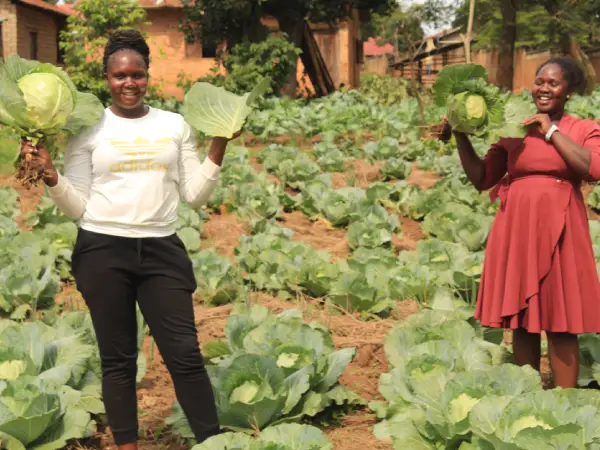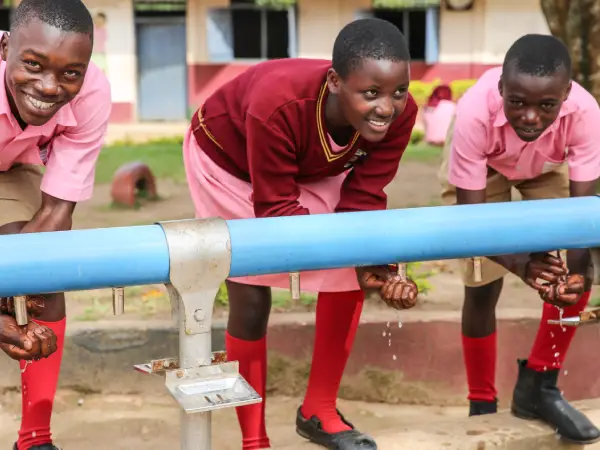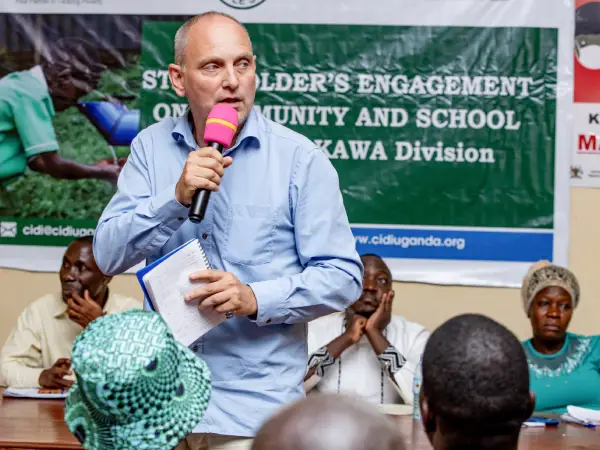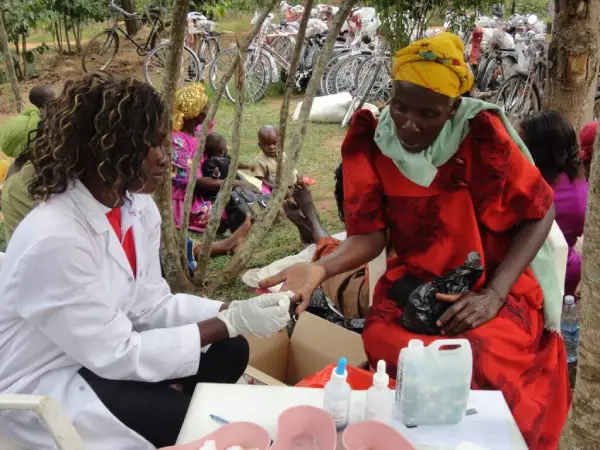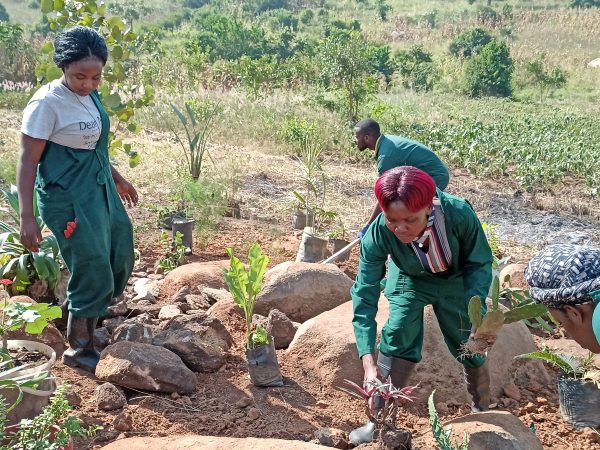CIDI Profile
About us
Community Integrated Development Initiatives, CIDI was founded in 1996 and registered in 1999 as a legal not-for-profit NGO with the Ministry of Internal Affairs under registration certificate No. 2715 and Reference No. S-5914/2868. It was founded by a team of experienced and competent professionals motivated by the dire need for concerted efforts to fight poverty in Uganda about 60% of whose population is poor and 35% core poor.
CIDI mainly focuses on actions that directly improve on the lives of the poor, vulnerable and marginalized communities in urban, peri-urban and rural areas. CIDI is to continue investing in community empowerment programs that contribute towards poverty reduction through the provision of sustainable integrated technical and material support, in broad areas of sustainable agriculture, environmental conservation, lobbying, health promotion, income generation, water and environmental sanitation, lobbying and advocacy.
CIDI mainly focuses on actions that directly improve on the lives of the poor, vulnerable and marginalized communities in urban, peri-urban and rural areas. CIDI is to continue investing in community empowerment programs that contribute towards poverty reduction through the provision of sustainable integrated technical and material support, in broad areas of sustainable agriculture, environmental conservation, lobbying, health promotion, income generation, water and environmental sanitation, lobbying and advocacy.
CIDI is driven by the following strategic goals :
Improved access to clean and safe water, hygiene and sanitation services for the target poor communities.
To improve house hold food security and income generation among the rural poor subsistence households.
To contribute to increased community awareness and health literacy on accessibility, disease prevention and promotion of healthy lifestyles and productive population.
To increase the capacity of the disempowered local communities – directly affected by a number of challenges and policies to be their own advocates in bringing about positive change in their lives.

CIDI’s Sector Programs
CIDI’s sectoral interventions are all interlinked in such a way that they are all critical for the quest for achievement of MDG’s and general improvement in livelihoods.
Water and Environmental Sanitation
Goal: Improved access to clean and safe water, hygiene and sanitation services for both the rural and urban poor communities.
The program is implemented in the rural areas of Rakai, Soroti, Napak, Katakwi and Amuria as well as in the urban poor settlements of Kampala City.
Key activities include
- Community based Water Management and Education
- Citizens’ empowerment for action, voice and demand for improved and accountable WATSAN service delivery.
- Community and civil society empowerment for better understanding of WATSAN sector policies, rights and financial regimes.
- Provision of water and water harvesting facilities
- Construction and promotion of sustainable sanitary facilities for both communities and schools.
CIDI also runs a Faecal Sludge Management (FSM) System, which involves: collection, transportation and definition of an operational system for linking primary collection with, UGAVACS, cesspool emptier trucks and an in-built community managed O&M system to support an effective sludge collection especially in informal settlements around Kampala city.
CIDI has championed feacal sludge management in Kampala city by emptying toilet facilities ( household facilities,schools,markets,churches,mosques,hotels among others) and this has tremendously reduced on the incidences of Cholera in the targeted communities.
These activities are driven by the desire to promote improved livelihoods in communities. CIDI is also aware from its previous works that good and inclusive sanitation and hygiene practices are key in not only increase in school enrollment but also in retention. This also has a multiplier effect as the school children act as change agents with in their homes and communities which improve on the general primary health outcomes. Sanitary facilities especially the toilets promote the dignity of women and lower incidences of infant mortality. The reduction in water borne diseases also reduces on the care burden the women suffer. However CIDI well knows that improved access to safe water and sanitation are not enough in promotion of both primary and secondary health care and therefore is involved in Health care Promotion and Advocacy.
CIDI has championed feacal sludge management in Kampala city by emptying toilet facilities ( household facilities,schools,markets,churches,mosques,hotels among others) and this has tremendously reduced on the incidences of Cholera in the targeted communities.
These activities are driven by the desire to promote improved livelihoods in communities. CIDI is also aware from its previous works that good and inclusive sanitation and hygiene practices are key in not only increase in school enrollment but also in retention. This also has a multiplier effect as the school children act as change agents with in their homes and communities which improve on the general primary health outcomes. Sanitary facilities especially the toilets promote the dignity of women and lower incidences of infant mortality. The reduction in water borne diseases also reduces on the care burden the women suffer. However CIDI well knows that improved access to safe water and sanitation are not enough in promotion of both primary and secondary health care and therefore is involved in Health care Promotion and Advocacy.

